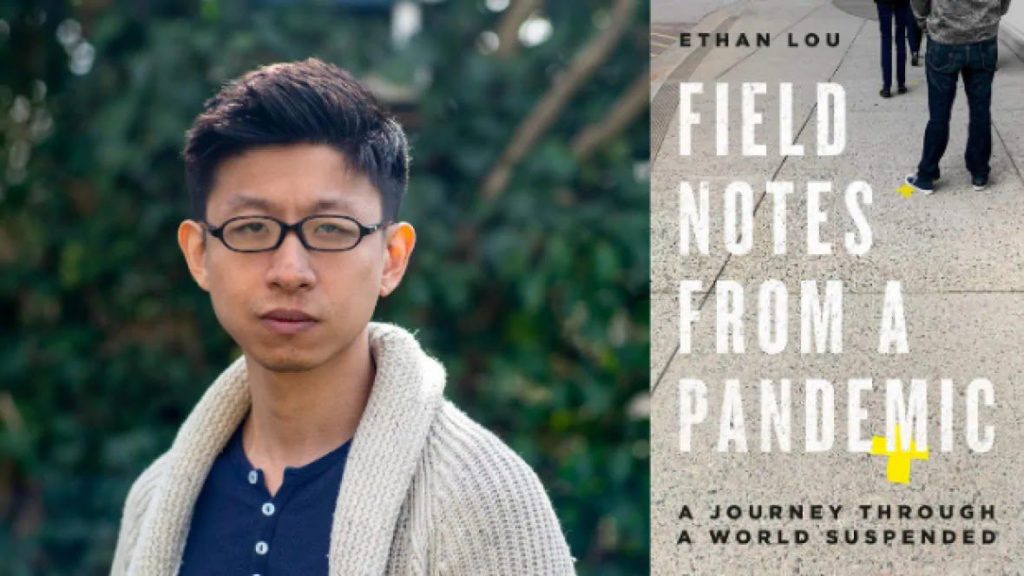The author published a book that includes reflections on the pandemic and a post-pandemic world

For journalist Ethan Lou, witnessing the pandemic take shape in Asia and Europe was not on his 2020 bucket list.
That is what his new book, Field Notes From A Pandemic, tries to capture. In a series of reflections and witty comments, Lou takes the reader on a journey that starts in China and ends in Germany. What starts out as a long-overdue vacation turns into a series of pandemic-related adventures, anxieties and headaches. The book is part-commentary and part-memoir. For Lou, this style of writing comes to him naturally.
“Writing is a cathartic exercise. When people ask me why I pursue journalism and why I became a writer, that is the one thing I’m good at,” he said. “I guess that’s the way it went. I think the world is definitely changing to a great degree with the virus, and those are my thoughts.”
Lou spends a lot of time in his book reflecting on the pandemic responses of each country that he visits. This begs the question: why have East Asian countries fared a lot better during the COVID-19 pandemic? Lou made it clear that a successful pandemic response isn’t just limited to East Asian countries. Instead, it all depends on how quickly a country responds to the virus.
“Nobody was truly prepared, but the countries that (had successful pandemic responses) were able to act quickly and decisively and I think a great part of that comes from having high trust in the society for public institutions,” said Lou.
He also acknowledged the significant role the SARS pandemic has on the COVID-19 response in East and Southeast Asia. The majority of SARS cases during the 2003 outbreak occurred in China, Japan, Taiwan, Vietnam and South Korea. All five countries applied the lessons they learned during and after the SARS outbreak to the COVID-19 pandemic, which has paid off.
As of Nov. 22, Taiwan has 0.03 COVID-19 deaths per 100,000 people and is internationally lauded as a country with one of the best COVID-19 responses. Vietnam is not far behind — it had only 0.04 COVID-19 deaths per 100,000 as of Nov. 22.
The COVID-19 pandemic, however, was devastating in another way for East Asian countries. The lockdown in Wuhan, China began on the third day of the Chinese New Year. Millions of people travel during the new year to be with their families, said Lou. He called it a mass internal migration. In his book, Lou writes that the fact that the virus hit China during Chinese New Year was a cruel joke.
“As a Chinese person I can definitely appreciate how culturally devastating this was. It was my first time celebrating Chinese New Year in China so I was quite excited to go back this time,” he said. “It might be hard to see it as a non-Chinese person, so they can buy my book, I guess.”
As for what Canada’s future will look like post-pandemic, Lou is not so sure. “In times of crisis, we might need to make tough sacrifices on the path (to recovery),” he said. “We should never forget, however, that states of emergency are meant to be temporary and we shouldn’t let (the new regulations) be a slippery slope towards something else.”
Lou believes that the pandemic has the potential to build a more progressive society. The pandemics and plagues of the past influence the modern world, he said.
“It is the reactions to the plagues that gave us this idea of the modern state that we currently live in. What is quite prevalent is that life is harsh and we need an authority to take care of us, so the idea of the government having a role in people’s lives will only increase,” said Lou.
“I think this is a small step towards a more progressive society.”
